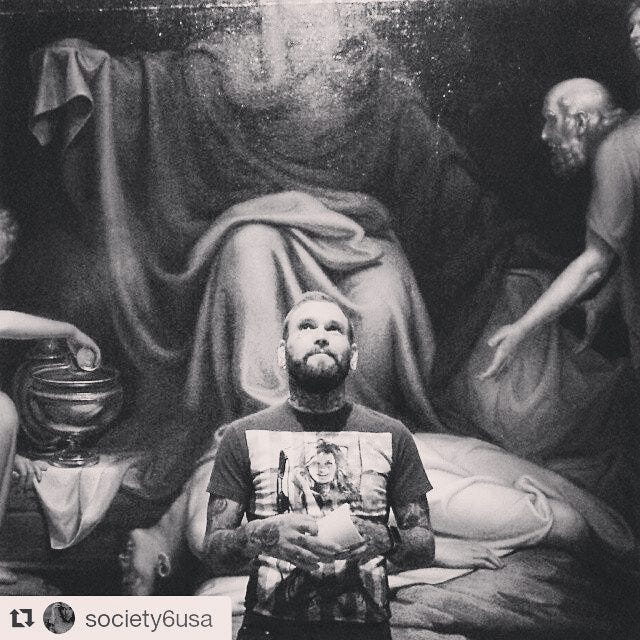What Greek Orthodoxy and the Charismatic Movement Teach Us About Faith
I never thought I’d find myself reflecting on the strengths of the Charismatic movement, given how much I’ve disagreed with its approach over the years. Yet, as my son delves into Greek Orthodox teachings through Christian YouTubers, I’ve found myself comparing these two vastly different expressions of the faith—and realizing there’s something valuable in both.
While I deeply respect the Orthodox Church for its rich traditions and profound theology, I’ve noticed it often emphasizes the mind and community at the expense of the heart and individual connection with God. This is where the Charismatic movement, for all its flaws, brings something essential to the Christian faith. It’s a reminder that Christianity is not just logical; it’s deeply emotional and relational as well.
What Orthodoxy Does Well: Depth and Reverence
Greek Orthodoxy offers an unparalleled sense of continuity with the ancient Church. Its liturgies are beautiful, otherworldly experiences that transport you into the mysteries of God. The theology is deeply rooted in Scripture and the early Church Fathers, emphasizing the transformative journey of theosis—becoming more like God.
Orthodoxy invites believers into a communal experience of faith. Everything, from the ornate icons to the chanting of the liturgy, speaks to the majesty and transcendence of God. It’s about entering into the eternal communion of the Trinity and living as part of the Body of Christ. For those seeking a faith that’s grounded, reverent, and rich in tradition, Orthodoxy is a haven.
What Orthodoxy Lacks: A Personal Connection
Despite its many strengths, Orthodox Christianity can sometimes feel distant or impersonal. Its focus on communal worship and structured liturgy leaves little room for spontaneous, personal expressions of faith. While the Church emphasizes God’s transcendence, it can miss the opportunity to highlight His immanence—the idea that God is intimately present in our lives.
This is where the Charismatic movement shines. The Charismatic tradition emphasizes a personal relationship with God, inviting believers to experience His presence in a tangible, emotional way. Through heartfelt worship, personal prayer, and testimonies, it reminds us that faith isn’t just about understanding who God is but also about feeling His love and responding to it on a personal level.
Faith Is Both Logical and Emotional
One of the great truths of Christianity is that it encompasses both head and heart, logic and emotion. The Orthodox Church excels at teaching believers the depths of God’s mysteries, encouraging a thoughtful and reverent faith. But the Charismatic movement reminds us that faith is also deeply emotional—a living, breathing relationship with God that involves love, joy, and even vulnerability.
When I think about my own journey of faith, I realize that both dimensions are essential. God gave us minds to explore the truths of the Trinity, the Incarnation, and the sacraments. But He also gave us hearts to experience His love, to cry out to Him in worship, and to feel the joy of His presence. Without both, our faith is incomplete.
What Can We Learn?
As I watch my son’s interest in Greek Orthodoxy grow, I’m struck by how much we can learn from exploring different traditions. Orthodox Christianity offers a much-needed antidote to the shallow, fast-paced nature of modern life, calling us to a deeper and more reverent faith. At the same time, the Charismatic movement challenges us to remember that faith is relational and personal—a dynamic encounter with the living God.
We don’t have to choose between these two approaches. Instead, we can allow them to inform and enrich each other. Orthodoxy can embrace more opportunities for personal connection with God, while Charismatic Christians can draw on the depth and reverence of Orthodox tradition to ground their faith.
A Balanced Faith
At the end of the day, Christianity is about more than tradition or emotion—it’s about transformation. Whether through the structured beauty of the Orthodox liturgy or the heartfelt spontaneity of Charismatic worship, the goal is the same: to know God, to love Him, and to be made more like Him.
For me, the journey has been about finding balance. I’ve learned to appreciate the strengths of both approaches, and I’ve come to see that each tradition offers something unique to the Body of Christ. The Orthodox Church reminds me of the greatness of God, while the Charismatic movement reminds me of His closeness. Together, they paint a fuller picture of the God who is both transcendent and immanent, both Lord of all and the lover of our souls.
The Journey from Self-Reliance to Spiritual Fulfillment
Many years ago, I made a vow to God that if He took away the thing that was tormenting me, I would tell the whole world about what He did.
Can Europe's Success Be Attributed to Following God's Law?
It is possible to argue that Europe's success in key historical periods—particularly in science, law, governance, and technological advancement—was indeed rooted in adherence to principles derived from Judeo-Christian teachings, especially through the influence of Christianity. Following these Abrahamic laws provided a foundation that transcended human …






